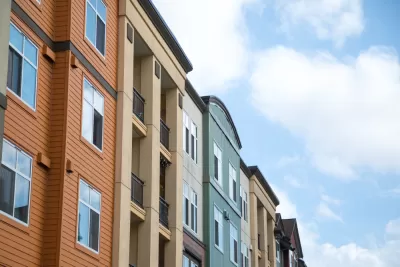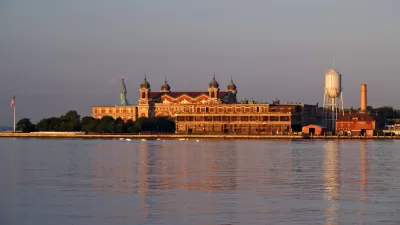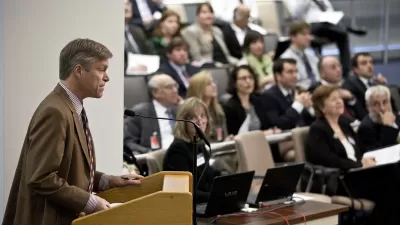All planners encounter passionate obstructionist activity at some point. While the reasoning for anti-development is often discussed, it's still not a widely understood force in the planning process and the evolution of cities.

New research from Paavo Monkeonen and Michael Manville at the University of California, Los Angeles shed light on the nature of community opposition to proposed developments. That kind of insight is valuable to anyone who tasked with listening and responding to the concerns of members of the public, like planners, or have a critical project to deliver through the approvals process, like planners.
The primary question posed by the new research paper published for free online by Monkkonen and Manville is about the cause of anti-development sentiment. The researchers surveyed 1,300 residents of Los Angeles County "to measure the relative power of different arguments against new housing." Respondents were questioned about common anti-development arguments, like traffic congestion, neighborhood character, and strained local services, and also introduced the idea that people might not like development "because they do not like developers."
The key finding of the report is strong evidence that much anti-development sentiment is actually anti-developer sentiment. According to the study's abstract, "opposition to new development increases by 20 percentage points when respondents see the argument that a developer is likely to earn a large profit from the building."

Alabama: Trump Terminates Settlements for Black Communities Harmed By Raw Sewage
Trump deemed the landmark civil rights agreement “illegal DEI and environmental justice policy.”

Study: Maui’s Plan to Convert Vacation Rentals to Long-Term Housing Could Cause Nearly $1 Billion Economic Loss
The plan would reduce visitor accommodation by 25% resulting in 1,900 jobs lost.

Planetizen Federal Action Tracker
A weekly monitor of how Trump’s orders and actions are impacting planners and planning in America.

Waymo Gets Permission to Map SF’s Market Street
If allowed to operate on the traffic-restricted street, Waymo’s autonomous taxis would have a leg up over ride-hailing competitors — and counter the city’s efforts to grow bike and pedestrian on the thoroughfare.

Parklet Symposium Highlights the Success of Shared Spaces
Parklets got a boost during the Covid-19 pandemic, when the concept was translated to outdoor dining programs that offered restaurants a lifeline during the shutdown.

Federal Homelessness Agency Places Entire Staff on Leave
The U.S. Interagency Council on Homelessness is the only federal agency dedicated to preventing and ending homelessness.
Urban Design for Planners 1: Software Tools
This six-course series explores essential urban design concepts using open source software and equips planners with the tools they need to participate fully in the urban design process.
Planning for Universal Design
Learn the tools for implementing Universal Design in planning regulations.
Caltrans
Smith Gee Studio
Institute for Housing and Urban Development Studies (IHS)
City of Grandview
Harvard GSD Executive Education
Toledo-Lucas County Plan Commissions
Salt Lake City
NYU Wagner Graduate School of Public Service




























